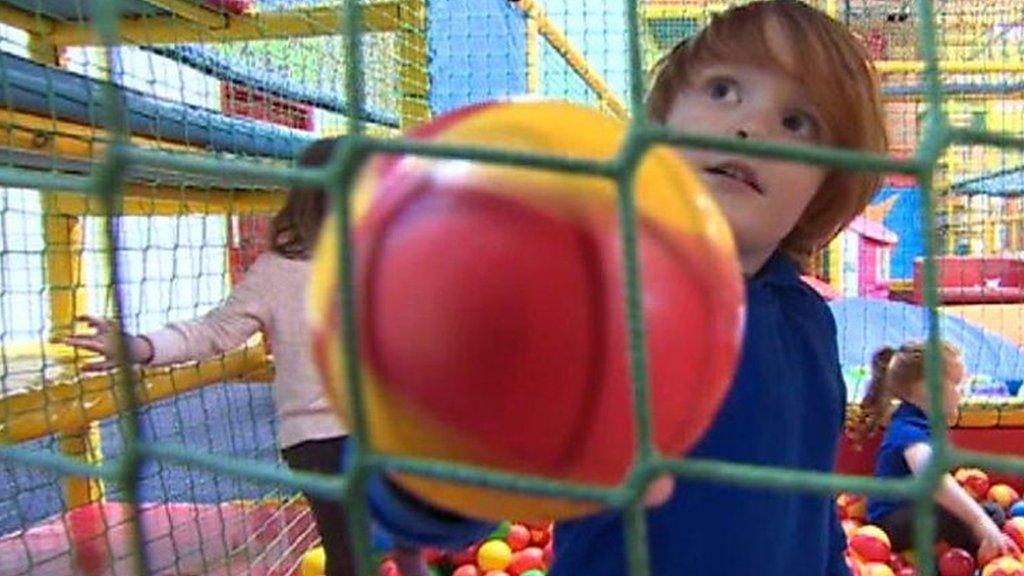Smacking ban Wales: Police warning over funding
- Published
- comments

Chief Constable Matt Jukes says money would be needed for training officers
More police funding would be needed to implement the proposed smacking ban, a senior police officer has said.
Matt Jukes, chief constable of South Wales Police, said forces would need more resources or it would impact other areas of policing.
If passed by the Welsh Assembly, the law would ban smacking by abolishing the "reasonable punishment" defence.
The Welsh Government said it would work with police to implement the proposed bill in a proportionate way.
Campaigners against the law fear it could criminalise parents.
Mr Jukes gave evidence to the assembly's children committee after the Welsh Chief Officer Group and All Wales Policing Group said they supported the bill in principle, but had some concerns about implementing the ban.
They said it was conceivable a child would be unable to live with a parent who was being prosecuted for smacking them, to prevent interference with the prosecution as well as to protect the child.
However, Mr Jukes sought to reassure AMs that the ban would not necessarily mean greater numbers of children being removed from family homes.
He said they did not anticipate hundreds of additional prosecutions, but funding would be needed for monitoring the impact of the ban, training and potential changes to systems.

Wales' police forces support the bill, but said more consideration of the potential consequences was needed
"Actually supporting things like multiagency safeguarding hubs, properly resourced, through local authorities, through any support Welsh Government can bring, would be an enormous fillip to this," he said.
"The answer to where it will come from, if not resourced? It will have to come from somewhere else."
Mr Jukes added it could not be left to police alone to deal with cases.
He said it was important to note that as the Welsh Government's powers develop "you cannot use legislation to make political statements and not have consequential impacts for organisations who have to manage this".
The written evidence from Welsh Chief Officer Group and All Wales Policing Group raised several issues they said needed further consideration.
Alleged criminal behaviour - such as a parent smacking a child - would be disclosed on advanced criminal record checks whether or not it was proven, they said, and there was a risk of malicious reporting against parents or professionals.
Cross-border
The new law would also raise cross-border issues, particularly for incoming tourists.
"Consideration is needed... with regards to how a visitor from England would be made aware that the defence for reasonable chastisement does not exist in Wales when it does in England," they said.
The proposed law would mean children would have the same protection from physical punishment as adults.
Charities including the NSPCC have said the law would bring Wales in line with dozens of other countries.
Speaking to Claire Summers on BBC Radio Wales, Jeff Cuthbert, the Police and Crime Commissioner for Gwent said: "We need to make sure the Welsh Government in the development of this legislation understand the issues involved, what the practical difficulties in policing could be."
A Welsh Government spokesman said the purpose of the bill was to help protect children's rights.
"If passed, this bill will ensure children and young people in Wales are legally protected from physical punishment... When we look at countries like Ireland, New Zealand and Malta, which have legal systems similar to ours, there is no evidence that the police and social services have been overwhelmed following law reform."
- Published25 March 2019

- Published25 March 2019

- Published6 August 2018
